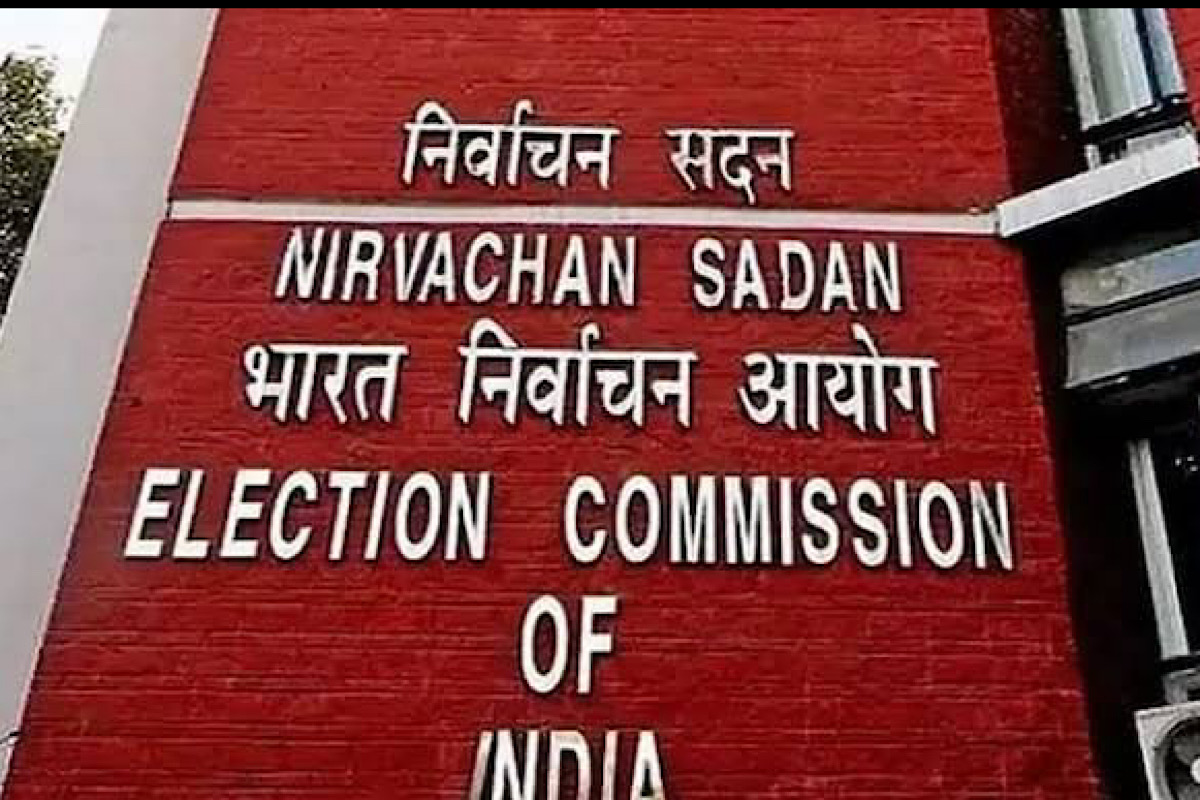Gyanesh Kumar takes charge as Chief Election Commissioner
Gyanesh Kumar took over as the 26th Chief Election Commissioner (CEC) on Wednesday and said the Election Commission of India was, is and will always be with the voters.
The poll panel has taken a serious view of parties and candidates seeking details of voters for their proposed beneficiary schemes as a “corrupt” practice of bribery.

Election commission of India (Photo:ANI)
The Election Commission of India (ECI) on Thursday asked political parties to desist from any activities that involve registering individuals for post-election beneficiary-oriented schemes through any advertisements, surveys and apps.
The poll panel said it has taken a serious view of activities by political parties and candidates seeking details of voters under the guise of various surveys for their proposed beneficiary schemes, as a “corrupt” practice of bribery under Section 123(1) of the Representation of the People Act, 1951.
Advertisement
It has noted that “some political parties and candidates have been engaging in activities that blur the lines between legitimate surveys and partisan efforts to register individuals for post-election beneficiary-oriented schemes”.
Advertisement
The ECI, while noticing various instances in the ongoing Lok Sabha elections, on Thursday issued an advisory to all national and state political parties in this regard.
“The act of inviting/calling upon individual electors to register for post-election benefits may create an impression of the requirement of the one-to-one transactional relationship between the elector and the proposed benefit and has the potential to generate a quid-pro-quo arrangement for voting in a particular way thereby leading to inducement,” the poll panel said in its advisory.
Sometimes, such pamphlets don’t bear the name of the publisher which is a direct violation of Section 127A of the Representation of the People Act, 1951, it said.
The ECI has directed all political parties and candidates or their agents or any other person(s) to immediately cease and desist from any activities that involve registering individuals for beneficiary-oriented schemes through any advertisements (in print or in digital space), pamphlets, websites, web or mobile applications, text or social media platform (WhatsApp. etc.) messages, missed calls, distribution of forms, or by collecting personal data under the pretext of off line survey forms or digital surveys.
The poll panel has directed all district election officers (DEOs) to take appropriate actions against any such advertisements within the statutory provisions namely Section 127A of the Representation of People’s Act, 1951, 123 (1) of the Representation of People’s Act, 1951, and Section 171 (B) IPC.
Advertisement